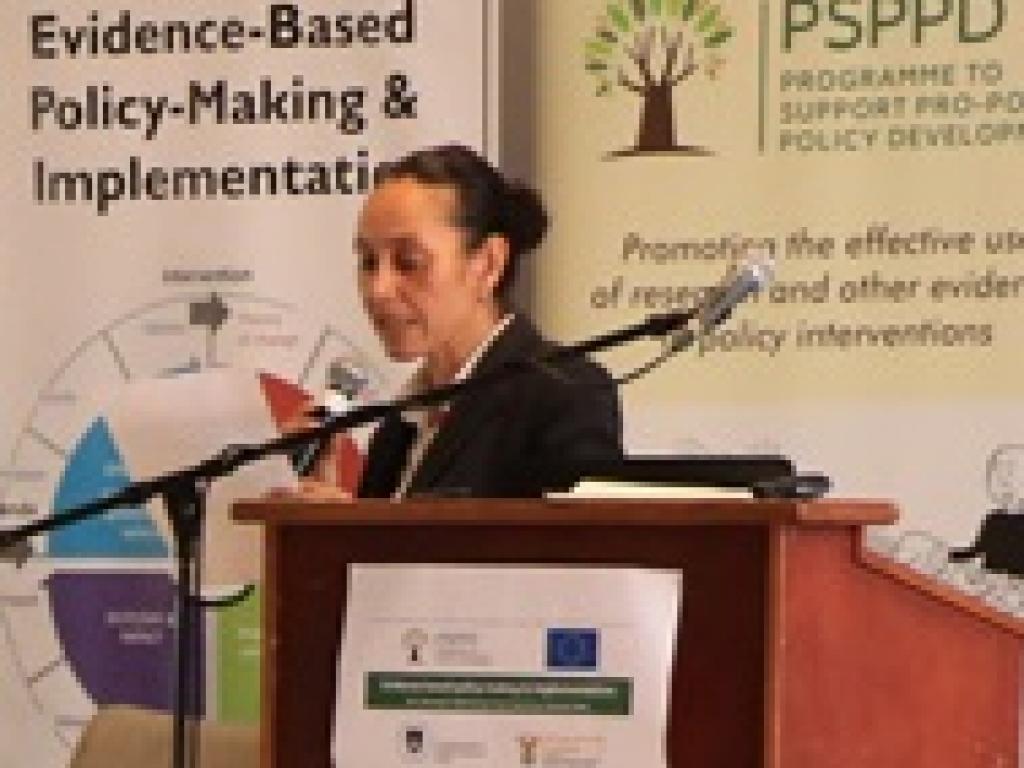Evidence-based Policy-making and Implementation course

The Graduate School of Development Policy and Practice, in partnership with the Department: Planning, Monitoring & Evaluation (DPME), and the Programme to Support Pro-Poor Policy Development (PSPPD II), presented the sixth iteration of the Evidence-based Policy-making and Implementation course from 24 – 26 October 2016.
The course was held at the Erinvale Estate Hotel and Spa, Somerset West, and attended by 38 senior government officials. Participants represented a range of national and provincial ministries, including the Department of Higher Education, Department of Women, and the Department of Public Service and Administration.
One of the highlights of the course was the ‘In Conversation’ session with Advocate Vusi Pikoli, who shared his experience in various government roles and his reflections on using evidence in policy processes and establishing the use of evidence-based processes. He also spoke to the difficulty of balancing evidence and political imperatives in the policy-making process.
The first day of the course addressed the importance of understanding evidence-based policy-making and implementation, focusing on the difference between evidence and opinion, the evidence cycle, diagnosing problems and developing a theory of change. The second day focused on evidence-based policy-making processes and tools, particularly on different types of research and evaluations and the ways in which these can support evidence-informed policy making. Practical examples (international, African and South African) of the factors that influence policy making and implementation were also explored. The final day provided participants with an overview of various data sources available to them and helped departmental teams identify their support needs and commitments to embedding evidence processes.
The course boasted an array of dynamic speakers, including Prof Murray Leibbrandt (Southern Africa Labour and Development Research Unit), Thandeka Kathi (Social Justice Coalition - http://www.sjc.org.za/), Risenga Maluleke (StatsSA - http://www.statssa.gov.za/) and Prof Taryn Young (Centre for Evidence Based Health Care - http://www.cebhc.co.za/).
Participants have described the Evidence-based Policy-making and Implementation course as excellent, enriching, very interesting, interactive and absolutely professional and relevant.
The course will be delivered again in May and October in 2017, final course dates are yet to be determined.
